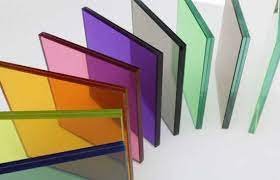
In the world of optics, filter glass plays a crucial role in controlling and manipulating light for various applications. From enhancing image quality in photography to enabling accurate scientific measurements, the right filter glass can make a significant difference in performance. Whether you are working in imaging, laser systems, or industrial inspection, filter glass is essential for achieving precise results.
What is Filter Glass?
Filter glass is a specially engineered type of glass designed to transmit, block, or modify specific wavelengths of light. It can be manufactured using different materials, colors, and coatings to achieve targeted optical effects. Depending on its design, it can enhance contrast, reduce glare, or isolate certain light spectra for better clarity.
Types of Filter Glass
-
Color Filter Glass – Blocks or transmits specific colors to improve imaging accuracy.
-
Neutral Density Filter Glass – Reduces light intensity without altering color balance.
-
Infrared (IR) Filter Glass – Blocks infrared radiation while allowing visible light to pass.
-
Ultraviolet (UV) Filter Glass – Prevents UV rays from reaching sensitive sensors or lenses.
-
Bandpass Filter Glass – Allows only a narrow range of wavelengths to pass, ideal for spectroscopy.
Applications of Filter Glass
Filter glass is widely used in multiple industries, including:
-
Photography and Videography – Enhancing color balance and reducing glare.
-
Medical Devices – Improving diagnostic imaging clarity.
-
Industrial Inspection – Detecting defects using specific wavelength illumination.
-
Scientific Research – Controlling light for experiments and measurements.
-
Laser Systems – Protecting optical components from harmful wavelengths.
Benefits of Using High-Quality Filter Glass
-
Enhanced Optical Performance – Provides precise wavelength control for sharper results.
-
Durability – Resistant to scratches, temperature changes, and chemical damage.
-
Customization – Can be tailored to meet specific wavelength requirements.
-
Improved Efficiency – Reduces unwanted light interference for better accuracy.
Choosing the Right Filter Glass
When selecting filter glass, consider:
-
Wavelength Range – Match the glass type to your specific light requirements.
-
Application Purpose – Choose based on imaging, measurement, or protection needs.
-
Material Quality – Opt for high-grade materials for better optical clarity.
-
Coating Type – Anti-reflective or protective coatings enhance durability and performance.
For reliable optical solutions, filter glass from trusted suppliers ensures accuracy and long-lasting performance.
Conclusion
Filter glass is more than just an accessory—it’s a key component in achieving accurate, efficient, and high-quality optical results. Whether in photography, science, or industry, the right filter glass ensures your equipment performs at its best while protecting sensitive components.

